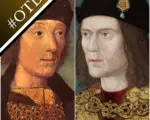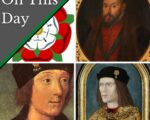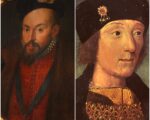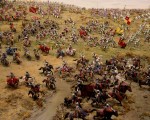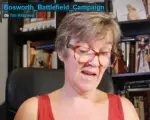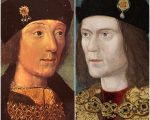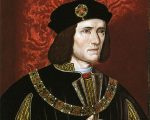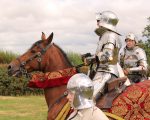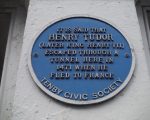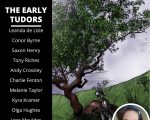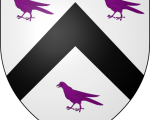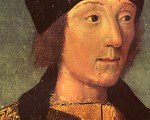On this day in history, the 22nd August 1485, in rural Leicestershire near Market Bosworth, the armies of King Richard III and Henry Tudor faced each other in a battle that would see the death of the King and the beginning of a new dynasty: the Tudor dynasty.
When Henry Tudor challenged the King on that August day, Richard III had been King for just over two years. He had gone from being Lord Protector to the young King Edward V, the twelve-year-old son of Richard’s brother Edward IV, to being King after Edward IV’s sons were declared illegitimate. His challenger, Henry Tudor, was the son of Edmund Tudor, 1st Earl of Richmond, and Lady Margaret Beaufort, a woman descended from John of Gaunt, third son of Edward III. As a Lancastrian, Henry had fled to Brittany in France, after Edward IV successfully regained the throne from Henry VI in 1471. He returned to England after his mother had conspired with Elizabeth Woodville, Edward IV’s widow, to arrange a marriage between Elizabeth’s daughter, Elizabeth of York, and Henry, and to promote Henry as an alternative to Richard III.
[Read More...]
